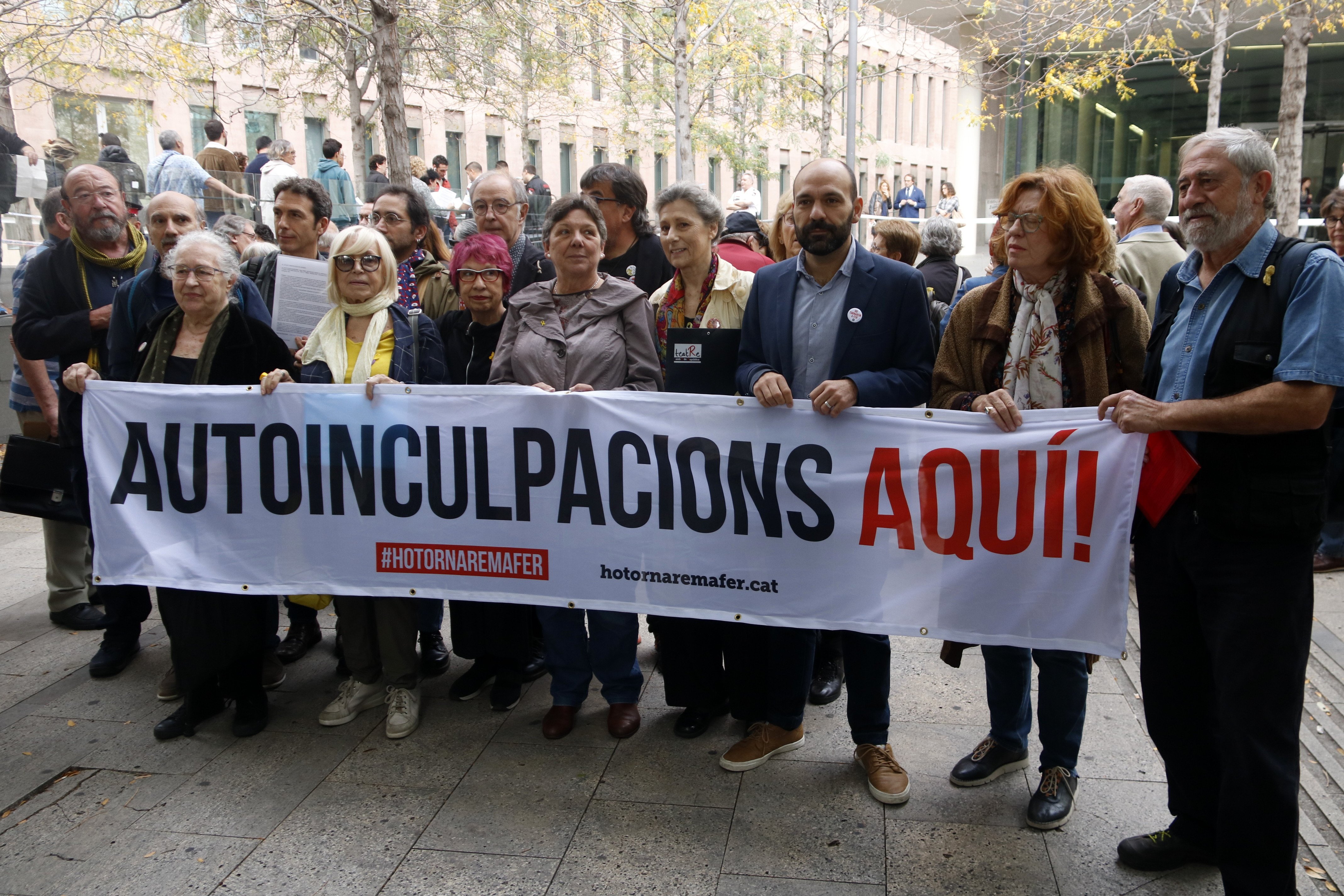"I took part in the protests in Barcelona on 20th September 2017 and then I voted in the Catalan independence referendum on 1st October 2017, and since the Supreme Court considers that these actions are equivalent to a crime of sedition, I too am guilty." That is, in brief, the essence of the content of the self-incriminating confession that hundreds of people have been presenting this Monday at courts all over Catalonia. A campaign promoted by the pro-independence civil group Òmnium Cultural as a gesture of solidarity with the nine Catalan politicians and social leaders sentenced to 9-13 years of jail. A kind of "me too", Catalan independence style.

At nine o'clock in the morning, a long queue was snaking across the courtyard of Barcelona's stark modern judicial complex, the City of Justice. At the head of the line, Omnium vice president Marcel Mauri was the first to turn himself in, in a campaign which has been reproduced in the other three Catalan provincial capitals, Tarragona, Lleída and Girona. In order to cope with the avalanche of confessions, the court limited access to one person at a time. Once inside, the procedure only takes five minutes. "If you convicted them, you'll also have to convict more than two million people," said Mauri as he emerged from the judicial centre, to applause.
Next in the queue was Pepe Beunza, the first conscientious objector in Spain in the 1990s fight against compulsory military service in the Spanish state, and a reference figure in non-violent civil disobedience.
As for the possible criminal consequences that could result from this action, Òmnium explains that "this is the responsibility of those who decide to incriminate themselves" and that the action is proposed "as a means of showing solidarity with the political and civil society leaders convicted of committing acts identical" to those carried out by the ordinary Catalans who have now decided to proclaim their "guilt". Yes, Omnium is committed to assisting all who may receive any resulting notification by the court.
The Catalan High Court ordered that only about 25 confessions per day were to be accepted at each centre, in order to maintain service to the public and avoid overcrowding. In the case of Barcelona, given the size of the City of Justice facility, the volume accepted is higher.
The 2014 precedent
Five years ago, coinciding with the opening of the trial against then-Catalan president Artur Mas and ministers Joana Ortega and Irene Rigau for their part in Catalonia's unofficial independence consultation on November 9th, 2014, thousands of people carried out a similar protest of self-incrimination. On that occasion, the crime that thousands of people confessed to was disobedience of the court order prohibiting the vote. The written confessions were sent to the Catalan High Court which ended up dismissing them all.


